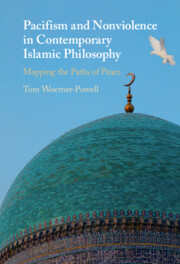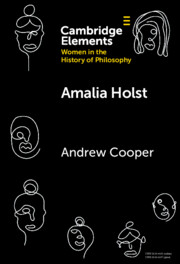Refine search
Actions for selected content:
118 results
European society and its law: EU law in light of social theory
-
- Journal:
- European Law Open ,
- Published online by Cambridge University Press:
- 09 December 2025, pp. 1-28
-
- Article
-
- You have access
- Open access
- HTML
- Export citation
3 - Social Constructivism and the Very Idea of a Conceptual Scheme
-
- Book:
- Moral Imagination in the Twenty-first Century
- Published online:
- 30 October 2025
- Print publication:
- 13 November 2025, pp 56-83
-
- Chapter
- Export citation
Peut-on encore être coopérant volontaire? Essai critique
-
- Journal:
- Canadian Journal of Political Science/Revue canadienne de science politique , First View
- Published online by Cambridge University Press:
- 03 November 2025, pp. 1-20
-
- Article
-
- You have access
- Open access
- HTML
- Export citation
‘The Conduct of Inquiry’ in ontological security studies: scientific methodologies and their implications
-
- Journal:
- International Theory , First View
- Published online by Cambridge University Press:
- 15 September 2025, pp. 1-31
-
- Article
-
- You have access
- Open access
- HTML
- Export citation
11 - Choreographic Visions and Revisions
- from Part III - Performance and Interpretation
-
-
- Book:
- The Cambridge Companion to <i>The Rite of Spring</i>
- Published online:
- 28 June 2025
- Print publication:
- 17 July 2025, pp 218-235
-
- Chapter
- Export citation
1 - Criminal Justice and the Metaphysical Animal
-
- Book:
- Rethinking Criminal Justice
- Published online:
- 17 May 2025
- Print publication:
- 05 June 2025, pp 1-24
-
- Chapter
- Export citation
2 - Social Medicine in the Arab World
-
-
- Book:
- Medicine on a Larger Scale
- Published online:
- 05 May 2025
- Print publication:
- 22 May 2025, pp 40-59
-
- Chapter
-
- You have access
- Open access
- HTML
- Export citation
16 - Examining Elephants in the Dark
- from Part III - Conclusion
-
-
- Book:
- Ways of Seeing International Organisations
- Published online:
- 17 April 2025
- Print publication:
- 24 April 2025, pp 311-322
-
- Chapter
-
- You have access
- Open access
- HTML
- Export citation
12 - ‘The Critic Is Not the One Who Debunks, but the One Who Assembles’
- from People, Practices, and Performance
-
-
- Book:
- Ways of Seeing International Organisations
- Published online:
- 17 April 2025
- Print publication:
- 24 April 2025, pp 227-246
-
- Chapter
-
- You have access
- Open access
- HTML
- Export citation
Media Coverage of Fukushima, Ten Years Later
-
- Journal:
- Asia-Pacific Journal / Volume 19 / Issue 17 / September 2021
- Published online by Cambridge University Press:
- 14 March 2025, e4
-
- Article
-
- You have access
- Open access
- Export citation

Pacifism and Non-Violence in Contemporary Islamic Philosophy
- Mapping the Paths of Peace
-
- Published online:
- 13 March 2025
- Print publication:
- 20 March 2025
-
- Book
-
- You have access
- Open access
- Export citation
Queens of the Mother City: A Queer Investigation into the Roots of Cape Town’s Royals
-
- Journal:
- Cambridge Journal of Postcolonial Literary Inquiry / Volume 11 / Issue 3 / September 2024
- Published online by Cambridge University Press:
- 03 March 2025, pp. 298-316
-
- Article
-
- You have access
- Open access
- HTML
- Export citation
2 - Principles of Cognitive CDA
-
- Book:
- Language, Image, Gesture
- Published online:
- 08 January 2025
- Print publication:
- 13 February 2025, pp 28-47
-
- Chapter
- Export citation
When a Psychometric Advance Falls in the Forest
-
- Journal:
- Psychometrika / Volume 71 / Issue 3 / September 2006
- Published online by Cambridge University Press:
- 01 January 2025, pp. 447-450
-
- Article
- Export citation
2.10 - The Market
- from History 2 - Mechanisms
-
-
- Book:
- The New Cambridge History of Russian Literature
- Published online:
- 31 December 2024
- Print publication:
- 12 December 2024, pp 388-406
-
- Chapter
- Export citation
Using the model of generative change to facilitate informal music learning
-
- Journal:
- British Journal of Music Education , First View
- Published online by Cambridge University Press:
- 04 December 2024, pp. 1-19
-
- Article
-
- You have access
- Open access
- HTML
- Export citation
Critical security research and the war on terror: From the margins to the mainstream?
-
- Journal:
- European Journal of International Security / Volume 10 / Issue 1 / February 2025
- Published online by Cambridge University Press:
- 27 November 2024, pp. 150-169
-
- Article
-
- You have access
- Open access
- HTML
- Export citation

Amalia Holst
-
- Published online:
- 25 November 2024
- Print publication:
- 19 December 2024
-
- Element
- Export citation
Chapter 15 - Critique
-
-
- Book:
- The Cambridge Companion to Literature in a Digital Age
- Published online:
- 29 November 2024
- Print publication:
- 14 November 2024, pp 273-291
-
- Chapter
- Export citation
Chapter 8 - Postcolonialism
- from Part 1 - Theories of International Relations
-
-
- Book:
- An Introduction to International Relations
- Published online:
- 31 August 2024
- Print publication:
- 12 August 2024, pp 108-119
-
- Chapter
- Export citation
